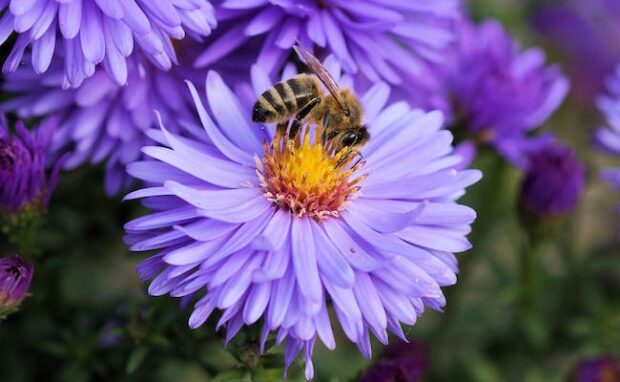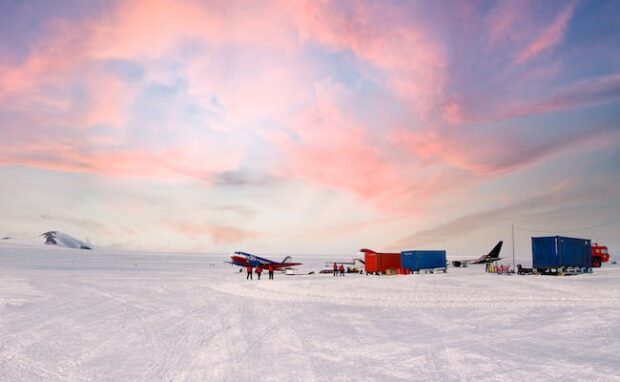Increasing self-pollination another sign of climate change
More flowers are evolving to self-pollinate as the insects that carry their pollen become rarer. Eventually, they “learned” to reproduce without them, which could make them more susceptible to extinction. Moreover, it can endanger these insects further, exacerbating the destructive impacts of climate change.
Scientists release such reports to inform the public that we must do more to save our environment. Specifically, many of our fruits, vegetables, and flowers depend on pollination to maintain and increase their populations. If we don’t do something sooner, we might experience more serious problems like world hunger.
This article will explain why more flowers have evolved to use self-pollination and elaborate on its potential consequences. Later, I will share other recent global warming impacts.
Why is self-pollination spreading?

Many flowers rely on insects like bees and butterflies to spread their pollen far away. Eventually, other flowers receive pollen to initiate the creation of fruits and vegetables. However, insect populations have declined, causing these plants to rely on themselves to reproduce.
In other words, flowers are evolving to self-pollinate. The French National Center for Scientific Research (CNRS) and the University of Montpellier concluded that when they studied modern field pansies and older ones.
“Population genetics analysis reveals a 27 percent increase in realized selfing rates in the field during this period,” the researchers said. It may seem like no problem because they can still reproduce with self-pollination.
The scientists discovered that newer ones are less diverse than older ones. Consequently, the flowers become more susceptible to environmental changes, making them more likely to go extinct.
“We documented trait evolution towards smaller and less conspicuous corollas, reduced nectar production, and reduced attractiveness to bumblebees, with these trait shifts convergent across the four studied populations,” the scientists observed.
The flower’s surface became 10% smaller, making them less attractive to insects. Consequently, they get fewer pollination visits, reducing the need to produce nectar and make themselves attractive.
“This study demonstrates that plant mating systems can evolve rapidly in natural populations in the face of ongoing environmental changes,” write the researchers.
You may also like: Scientists discovered a new plant cell type
“The rapid evolution towards a selfing syndrome may, in turn, further accelerate pollinator declines, in an eco-evolutionary feedback loop with broader implications to natural ecosystems.”
As climate change worsens, it perpetuates a vicious cycle of declining insect and flower populations. Soon, it could cause worldwide hunger.
Our food supply relies on pollination. We need bees, butterflies, and other insects to help flowers to produce fruits and vegetables. If they disappear, many of our food staples may join them.
Other climate change findings

This year marks the first time global temperatures exceeded the 2°C limit for the first time. As a result, rising global temperatures may lead to unprecedented disasters.
However, they also caused strange phenomena, such as increased floral growth in Antarctica. Contrary to popular belief, more flowers do not mean a better world in this context.
Antarctica is one of the most frigid regions of the world; its extreme cold is unsuitable for most lifeforms. Yet, scientists have seen more of its native flowers, the Antarctic pearlwort and Antarctic hair grass, dotting its expanse.
University of Insurbia researcher Nicoletta Cannone and her team confirmed these plants are growing faster because Antarctic ice is melting faster than ever.
The melting ice opened more spaces for the further growth of these plant species. British Antarctic Survey researcher Peter Convey told New Scientist, “The most novel feature of this is not the idea that something is growing faster.”
“It’s that we think we’re starting to see what is almost like a step change or a tipping point,” he added. Also, Scottish Association for Marine Science member Matthew Davey noted, “Accelerated expansion is now clearly evident in the region.”
You may also like: Scientists turn flies into biodegradable plastic
Another team of scientists found pollution has worsened, disrupting our sense of smell. The researchers discovered that exposure to ultrafine traffic emissions changes the expression of several genes in human olfactory mucosa cells.
“The olfactory system has been found to mediate the effects of environmental pollutants on the brain, thus contributing to the pathogenesis of brain diseases, said first author Laura Mussalo.
Pathogenesis refers to the development of specific illnesses. Consequently, traffic emissions could facilitate the development of brain diseases in our bodies.
Conclusion
We are losing insects that are helping flowers reproduce worldwide. As a result, more of these plants exhibit self-pollination, making them more susceptible to various risks.
If a variant dominates the majority of a flower population, a disease could wipe it out. Also, it discourages these plants from attracting pollinators, leading to more dead flowers and insects.
Learn more about this self-pollination study from its New Phytologist Foundation webpage. Moreover, check out more digital tips and trends at Inquirer Tech.